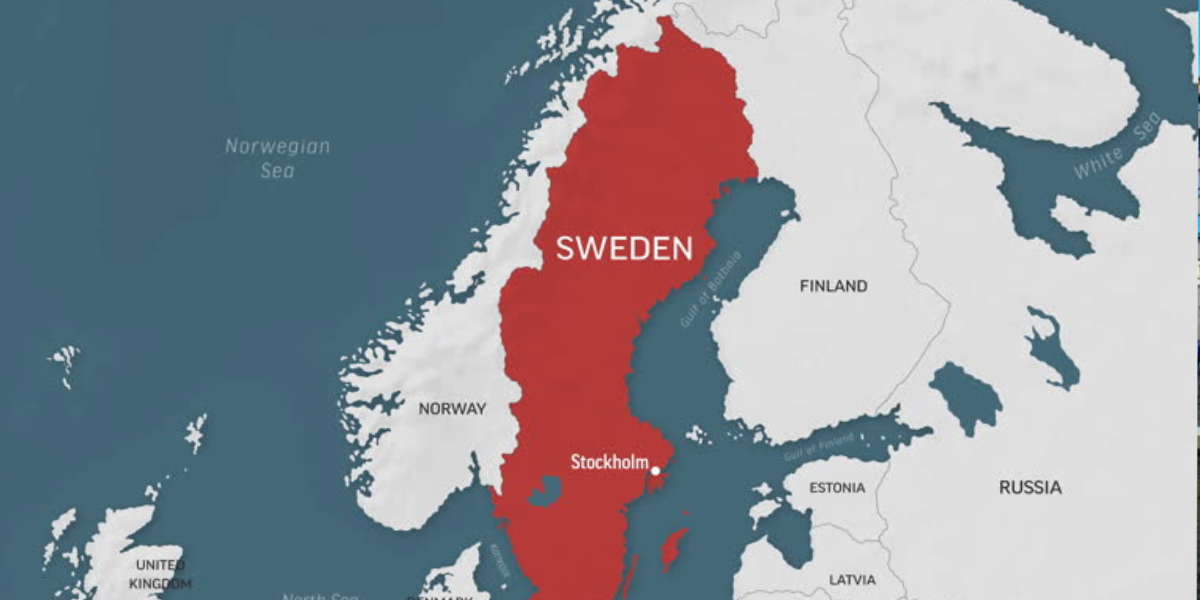More than 11 years revealing secrets because there is no excuse for secrecy in God’s true religion – The Watchtower, June 1st 1997; Dan 2:47; Matt 10:26; Mark 4:22; Luke 12:2; Acts 4:19, 20.

In highlight: Sweden, next to Norway, The Second Country now denying or revoking public religious subsidies to Jehovah’s Witnesses on the “values/democracy criteria” rationale
Written and Published by: Miss Usato
On October 24th, 2025, The Swedish Authority for Support to Faith Communities (SST) has rejected Jehovah’s Witnesses’ application for government funding under the 2024:487 Act on State Aid to Religious Communities.
To read the official documents on this matter:
JV Sverige avslag In English: Summary of Sweden’s Decisions 2025
As of late 2025, two countries have formally denied or revoked Jehovah’s Witnesses’ eligibility for state financial support under laws that tie funding to democratic or human-rights criteria:
Norway – In 2022, the government withdrew registration and subsidies, arguing that Jehovah’s Witnesses’ shunning practices violated members’ rights.
• The Oslo District Court upheld the decision in 2024, but the Borgarting Court of Appeal overturned it on 14 March 2025.
• The state has appealed to Norway’s Supreme Court. The final outcome is pending, coming in February of 2026.
Sweden – On 24 October 2025, the Swedish Authority for Support to Faith Communities (SST) rejected the Witnesses’ application under the new 2024:487 Act. This is because the SST ruled that the group’s membership and shunning policies breach democratic and non-discrimination standards. This decision is active; the Witnesses may appeal to the Administrative Court in Stockholm.
Sweden’s new law explicitly binds state aid to a faith community’s alignment with defined democratic values (non-discrimination, internal governance, member rights). Norway emphasises equality under law and freedom of religion, but I didn’t find as strong a routine of state-aid eligibility checks based on internal practices of faith communities (at least not as clearly publicised).
Also, some sources indicate that Sweden’s stricter criteria (e.g., the “fundamental values of society” test) have been used to challenge or turn down applicants such as Jehovah’s Witnesses in Sweden’s case. State Funding of Registered Faith Communities: Discussing Democratic Values in Sweden
Why Sweden is doing this
Sweden’s decision isn’t just about one religious group; it’s about defining what kind of values the state chooses to support with public money. Under the new Act on State Aid to Faith Communities (2024:487), any religious community that wants government funding must not only meet formal requirements like size or structure, but also demonstrate that it aligns with Sweden’s democratic principles — equality, non-discrimination, and respect for individual freedom.
The Swedish Authority for Support to Faith Communities (SST) found that Jehovah’s Witnesses’ internal policies — particularly shunning former members and excluding people based on their choice of partner or sexual orientation — conflict with those principles. In essence, the state concluded that it can’t fund an organization whose internal rules contradict the very human rights and democratic norms it’s meant to uphold.
This marks a policy shift for Sweden. The new law intentionally tightens oversight, moving beyond checking paperwork to evaluating how faith communities actually treat their members. SST’s mandate now emphasizes that state support should reinforce, not undermine, the “fundamental values of society.”
By denying funding, Sweden is sending a signal: religious freedom is protected, but public subsidies come with expectations of transparency, equality, and respect for personal autonomy. In other words, the state won’t pay for practices it considers coercive or discriminatory, even when done in the name of religion.

English Version Below:
The Swedish Authority for Support to Faith Communities (SST) rejected the application by Jehovah’s Witnesses to receive state financial support (“statsbidrag”) under the 2024:487 Act on State Aid to Religious Communities.
The decision concludes that although Jehovah’s Witnesses meet the formal criteria (such as the minimum number of members), their organization does not fulfill the democratic requirements of the law — specifically those that relate to non-discrimination and respect for democratic values.
Background of the Case
Jehovah’s Witnesses submitted their application on March 10, 2025, seeking eligibility for government support.
SST reviewed 45 applications in total that year, of which 32 were deemed eligible.
The authority examined documents such as bylaws, annual reports, meeting minutes, and financial statements.
As part of its investigation, SST also considered media reports, public statements, and materials from the organization’s website.
During the review, SST asked Jehovah’s Witnesses for clarification on several issues, especially regarding:
Membership policy – whether individuals could be excluded based on sexual orientation or relationship status.
Treatment of former members – particularly those who leave the community.
Potential social sanctions (such as shunning) and their effects on families.
Handling of child protection issues.
Jehovah’s Witnesses did not provide full responses to some of SST’s questions, especially about exclusion due to life partner choices or the treatment of members who leave the faith.
Reasons for Rejection
SST determined that Jehovah’s Witnesses’ membership practices contradict the democratic criteria outlined in Section 5 of the 2024:487 Act, which states that aid cannot be granted to communities that: Use violence, coercion, or threats against individuals.
Discriminate against individuals or groups in a way that violates the principle of equal value of all people.
Defend or promote such actions.
Undermine democratic governance.
The authority found that:
Jehovah’s Witnesses exclude or refuse membership to individuals because of their choice of life partner (e.g., same-sex relationships), which violates anti-discrimination principles.
They encourage social isolation (“ostracism”) of members who leave the group, causing harmful psychological and social effects.
This form of “undue pressure” conflicts with the democratic and human rights standards required for state funding.
Jehovah’s Witnesses did not answer several of SST’s specific follow-up questions and did not comment on materials or evidence that were presented for their response.
This refusal weakened their case and prevented SST from finding mitigating factors.
Legal References
The decision relies on: Act (2024:487) on state aid to faith communities.
Proposition 2023/24:119, which explains that any religious community exerting coercive or harmful social pressure on members, especially in matters of belief or association, is ineligible for government support.
Sweden’s constitutional and human rights framework emphasizing equality, freedom of religion, and democratic participation.
Conclusion
SST found that:
Jehovah’s Witnesses deny or exclude membership on discriminatory grounds (life partner choice).
They exert undue social pressure on those who leave or disassociate. Therefore, SST concluded that Jehovah’s Witnesses do not meet the democratic criteria under the law and cannot receive state aid.
The decision was made by Director Isak Reichel, with legal and administrative staff participation. The organization has the right to appeal within three weeks to the Administrative Court in Stockholm, but the appeal must first be submitted to SST.
Additional Links: Thanks to Jan Nilsen for sending the Information + Jan Nilsen Reddit post